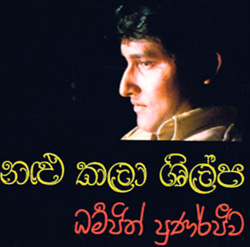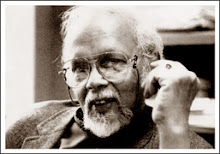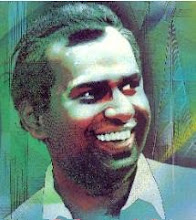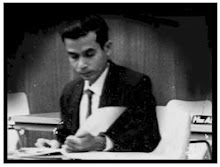Author: උපාලි සමරසිංහDate: 13/06/2010Source: Silumina ටෙලි නාට්ය කලා මාධ්යයක් නොවේ යැයි ඩී.බී. නිහාල්සිංහ වරක් කීවේය. අපේ රටේ ඇත්තේ ටෙලි නාට්ය නොව ටෙලි ෆිල්ම් යැයි කේ.ඒ. ඩබ්ලිව්. පෙරේරා ද කීවා මතකය. සරච්චන්ද්රයන් කීවේ මේ රටේ ඇත්තේ ටෙලි නාට්යය නොව සෝප් ඔපෙරා පමණක් බවය. කොහොම නමුත් රූපවාහිනියෙන් තරු බිහි විය නොහැකි බව විචාරක මතයයි. එනමුත් සිනමා සක්විති ගාමිණි ෆොන්සේකා සමඟ දොස්තර අනිල් සමරනායක කළ පිළිසඳරකින් විරචිත ‘ගාමිණි’ නම් කෘතියේ 260 පිටුවේ ඒ තරු සංකල්පය රූපවාහිනියෙන් ඇතැම් තැනක මතුවී ඇති බව ගාමිණි ෆොන්සේකා කියයි. ඒ එක් නළුවකු ගැන සඳහන් කරමිනි. මේ නළුවා අන් කවරකුවත් නොව ශි්රයන්ත මෙන්ඩිස්ය.
වේදිකාවේ පුහුණුවක් තිබුණද ශි්රයන්ත ප්රේක්ෂකයන් අතර ආකර්ෂණ වූයේ ධම්ම ජාගොඩගේ “පළඟු මැණිකේ” ටෙලි වෘත්තාන්තයේ ‘පට්’ ‘පට්’ ගා සම්තිං සෙවු තරුණයා ලෙසිනි. එදා මෙදා තුර සිනමාවේ, ටෙලිනාට්යයේ, වේදිකාවේ දිදුළ රංගන රැසක් පණ පෙවූ ශි්රයන්ත “පැන්ස දෙකේ හංසයා”, “වර්ණ” හා “පාදඩ අසපුව“ යන වේදිකා නාට්ය නිෂ්පාදනය කළේය. තමන්ගේ හඬ පෞරුෂය මතු නොව රංග පෞරුෂය මතු වූයේ ගුරුවරියක වන මවගේ මඟ පෙන්වීම නිසා යැයි හෙතෙම කියයි. අද වුවද අම්මාගේ දිරි ගැන්වීමේ මුහුණ හා ආශිර්වාදය ඕනෑම අභියෝගයක් බිඳ හෙළන්නට තමා ලැබූ මහරු දායාදයකැයි ශි්රයන්ත කීවේය. ඒ දයාබර මෑණියන් පිළිබඳ ශි්රයන්ත කියූ දේ මම ඔබට ලියන්නට වෙහෙසෙමි.
මගේ අම්මා එලියාදුර කරලැයින් සොයිසා. දකුණු පළාතෙ කෙනෙක්. විවාහයෙන් පස්සෙ පියා සමඟ රාගමට ඇවිත් තියෙන්නෙ. වෘත්තියෙන් ගුරුවරියක්. පියා වරායේ විධායක නිලධාරියෙක් ලෙස වැඩ කළා. හිද්දාදුර ලාසරස් මෙන්ඩිස්. මං තමයි පවුලෙ වැඩිමලා. අජිත් මෙන්ඩිස් හා මැණික් මෙන්ඩිස් නමින් සහෝදරයෙක් හා සහෝදරියක් ඉන්නවා. මං ඉපදිලා තියෙන්නෙ රාගම පොඩි වී කුඹුර ගමේ අපේ තාත්තගෙ මහගෙදර. පොල්අතු සෙවිලි කළ ලොකු ගෙදරක් බව මතකයි. වල්බිලින්ගහවත්ත ඉඩම කියන්නෙ ඒකට. ඇළ දොළ වේලි බැත කෙත කුඹුර, නිල්ගොයම, බණ්ඩි කරල්, දණ්ඩි පැටව්, ගහකොළ සතා සීපාවා එක්ක තිබුණු මේ සුන්දර බිම්කඩ ගැමි සුවඳ උරා ගත් තැනක්. ඒ ගැමි සුවඳ අම්මගෙ තුරුල්ලෙ ඉඳන් මා ලබලා තියෙන්නෙ.
මා හිතන්නෙ මගෙ නිර්මාණකරණයේ මුල් අත් පොත පොඩි වී කුඹුරෙ ඒ ගෙදර ලැබූ අත්දැකීමයි. ඊළඟට තාත්තා හදපු අලුත් ගෙදරකට අපි ගියා. රාගම රම්පිටියෙ. මේ ඉඩම අක්කර බාගයක් විතර ඇති. කාමර දෙකක් හදාගෙන අපේ පුංචි පවුල මහගෙදරින් එහෙම යනකොට පුංචි අම්මාත් (විවියන් සොයිසා) අපිත් එක්ක ආවා. සීයත් අපිත් එක්කම ආවා. පවුලේ රැකියාවක් කළ එකම ගැහැනිය අපෙ අම්මා නිසාත් තාත්තා විධායක මට්ටමේ රැකියාවක් කළ නිසාත් ඒ අයත් අපිත් එක්කම හිටියා. මගේ පුංචිම කාලේ ජීවිතය සුරක්ෂිත බව, බෙදාහදා ගැනීම වගේ දේවල් මේ කණ්ඩායමෙන් ම සිදුවුණා කියලා හිතෙනවා. අපේ අම්මා ප්රායෝගික ගැමි නුවණින් ඉතා පොහොසත්. ගුරුවරියක් හැටියටත් සේවය කළ නිසා බොහෝ දේ දන්නවා.
ඇය නිතරම මට යමක් කියා දුන්නේ කතන්දරයක් මාර්ගයෙන්. අනාදිමත් කාලයක ඉඳන් කතන්දර අහලා පුරුදු සිංහල ජනතාව අතරේ ඇය බොහෝ දේ දරුවන්ට පුරුදු කළේ අතීත සංස්කෘතියට වන්දනා කරමින්. දුටුගැමුණු කුමාරයාගේ කතාව, ගෝඨයිම්බර, සුරනිමල යෝධයන් ගැන ඇය කියා දුන්නා. උදේටත් හවසටත් මට තුරුලු වන අම්මාගේ ඒ සුවඳ මගේ් ජීවිතය එකලු කළා. සෞන්දර්යය පිළිබඳ මුල් පාඩම මා උගත්තේ සීයාගෙන්. බූරු ඇඳක ඇලවී සීයා කියන කවි ස්තෝත්ර අසමින් මා කාලය ගත කළා. ඇය සංගීත ගුරුවරියක්. ඉතාම මිහිරියාවෙන් කවි ගී ගැයීමට දක්ෂයි. ඇය උදේට ගියාම සවස ආයිත් ගෙදර එනකම් මං හිටියෙ පුංචි අම්මත් එක්ක. හවසට එනකොට ඇය අතේ මා වෙනුවෙන් මොනවා හරි තියෙනවා. අඩුම තරමේ ටොෆි දෙකක් හරි.
මෙහෙම ඇවිත් ඇය මටත් බත් කටක් කවලා ආදරයෙන් ඔළුව අතගාලා කියපු කතාවක් මට අද වගේ ම මතකයි. “පුතේ, උඹ ඉපදෙන්න ඉන්න කාලෙ මං වයලීනය වයමින් බඩ අත ගෑවා. ඒ උඹ කවරදා හරි සෞන්දර්යවාදියෙක් වෙනවා කියලා හිතුණු නිසයි. හැබැයි දරුවො මොලේ වැඩිලා ලොකු මිනිහෙක් වෙලා වැඩක් නෑ. ලොකු මිනිහෙක් නොවෙයි හොඳ මිනිහෙක් වෙයන්.” මා හිතන්නෙ අම්මගෙ ඒ ප්රාර්ථනාව අද සඵල වුණා. අපේ පවුලෙ කිසිම කෙනෙක් කලාවට සම්බන්ධ නෑ. පළමු කලාකරුවා බිහිවන්නෙ මෙතැනින්.
 සංගීත ගුරුවරියක් හැටියට කලාකාමී පැත්තට නැඹුරුව ඉන්න අම්මා කලාවේ වෙනස් අවශේෂාංග මගෙන් බලාපොරොත්තු වුණා කියලා හිතෙනවා. අම්මා රාගම නාගොඩ මහා විද්යාලයයෙ තමයි ඒ කාලෙ උගැන්නුවෙ. අනෙක් ළමයි ස්කෝලෙ යනකොට මාත් ස්කෝලෙ ගියා. ඒ “සොයිසා ටීචර්ගෙ පුතා” නිසා. අම්මා උගන්වන පංතිය පැත්තකින් මාවත් තියා ගන්නවා. පෙර පාසලට පසුව ඇතුළු කළා. මට මතකයි පෙර පාසලේ වාර්ෂික ප්රසංගය දවසෙ අනෙක් ටීචර්ලා කියනවා සොයිසා ටීචර්ගෙ පුතාට තමයි අර කෑල්ල දෙන්න ඕනැ කියලා. මටත් තරමක තුෂ්නිම්භූතයක්. මගේ ජීවිතයේ පළමුවැනි සෞන්දර්යාත්මක අත්දැකීම ඒ විදියට මුණ ගැසේවි කියලා මාත් අම්මවත් හිතුවෙ නෑ. මට සරමකුයි බැනියමකුයි ඇන්ඳූවා. දැන් පුහුණු කරනවා. පද හතරක් තියෙනවා කියනවා වගේ කට හොලවන්න. ශබ්ද විකාශනයෙන් තැටිය වාදනය වෙනවා. මෙන්න පද හතර...
සංගීත ගුරුවරියක් හැටියට කලාකාමී පැත්තට නැඹුරුව ඉන්න අම්මා කලාවේ වෙනස් අවශේෂාංග මගෙන් බලාපොරොත්තු වුණා කියලා හිතෙනවා. අම්මා රාගම නාගොඩ මහා විද්යාලයයෙ තමයි ඒ කාලෙ උගැන්නුවෙ. අනෙක් ළමයි ස්කෝලෙ යනකොට මාත් ස්කෝලෙ ගියා. ඒ “සොයිසා ටීචර්ගෙ පුතා” නිසා. අම්මා උගන්වන පංතිය පැත්තකින් මාවත් තියා ගන්නවා. පෙර පාසලට පසුව ඇතුළු කළා. මට මතකයි පෙර පාසලේ වාර්ෂික ප්රසංගය දවසෙ අනෙක් ටීචර්ලා කියනවා සොයිසා ටීචර්ගෙ පුතාට තමයි අර කෑල්ල දෙන්න ඕනැ කියලා. මටත් තරමක තුෂ්නිම්භූතයක්. මගේ ජීවිතයේ පළමුවැනි සෞන්දර්යාත්මක අත්දැකීම ඒ විදියට මුණ ගැසේවි කියලා මාත් අම්මවත් හිතුවෙ නෑ. මට සරමකුයි බැනියමකුයි ඇන්ඳූවා. දැන් පුහුණු කරනවා. පද හතරක් තියෙනවා කියනවා වගේ කට හොලවන්න. ශබ්ද විකාශනයෙන් තැටිය වාදනය වෙනවා. මෙන්න පද හතර...
සරම අඳිමු - පොරව ගනිමු - ගසක් කපමු - ගස පෙරළමු
දැන් නම් ගහක් කපන එක නෙමේ කරන්නෙ. වවන එක. ඒ කාලෙ ගස් වැඩියෙන් තියෙන්න ඇති. (පිළිසඳර අතරතුර ඔහු ශබ්දනගා සිනාසෙයි.) දැන් ඔන්න ප්රසංගය පටන් ගත්තා. අම්මා මාව වේදිකාවට උස්සලා තියලා මුහුණ සිම්බා. ඒ උණුහුම මගේ දහිරිය වැඩි කළා. දැන් සින්දුව වාදනය වේගෙන එනකොට මං අම්මගෙ මුහුණ බැලුවා. ඇය ඉදිරිපෙළ ආසනයක ආසාවෙන් බලා හිටියා. දැන් මුල් කෑල්ල සරම අඳින බව අභිනයෙන් පෙන්නුවා. පොරවත් අතට ගත්තා. පොරවෙ තලේට තිබුණෙ කාඩ්බෝඩ් තලයක්.
ගසක් කපමු කියපු ගමන් හදලා තිබුණ ගහට ගැහුවා. මෙන්න තලේ ගැලවිලා වැටුණ. තවත් ටිකක් යනකොට සරමත් ගැලවුණා. මට කඳුළු ආවා. මං සරම අතින් අල්ලගෙන ප්රේක්ෂාගාරය දිහා බැලුවා. අම්මා සැලුණෙ නෑ. ඈ අතින් සන් කළේ ඉතිරි ටිකත් ඔහොමම කරන්න කියලයි. මට පණ ආවා. ඇසින් වැටෙන්න ගිය කඳුළු ආයිත් ඇසටම ගිලුණා. මං ඉතිරි ටිකත් අත්පොලසන් නද මැද්දෙම කළා. අම්මා දුවගෙන ඇවිත් වේදිකාවට නැඟලා මගේ ඔළුව අත ගෑවා. අදත් මා වේදිකාවට නඟිනකොට කකුල් වෙවුලන්නෙ නෑ. කිසිම දවසක අඬන්නෙත් නෑ. ඒ වගේ අභියෝගාත්මක රංගනයක් කරන හැම වෙලාවෙම අපහසුවක් දැනෙනකොට මට අම්මාගේ ධෛර්යවත් මුහුණ මැවිලා පෙනෙනවා. ඒ නිසා අම්මා මගේ වේදිකාව ජය ටැඹ පාදා දුන්නී කියන්න කැමැතියි.
අපි පුංචි කාලෙ (බනිස්) දවල් ආහාරයට රජයෙන් බෙදා දුන්නා. මේ බනිස් වැලත් එකටම මූට්ටු වෙලයි තියෙන්නෙ. විවේක කාලයට ඉස්සෙල්ලා බනිස් ගෙඩියේ උඩ කෑල්ලයි යට කෑල්ලයි දෙකම කනවා. කොල්ලොත් එක්ක බනිස්වලින් ගහ ගන්නවා. ඉතින්! ළමයි විශාල ගණනකට කන්න නෑ. බනිස් කුඩුවෙලා. ඒත් මේ මොන ආකාරයේ පුංචි දඟකාරකමකට වුණත් කොල්ලො මට දඬුවම් කරන්න ආවෙ නෑ. මොකද මං සොයිසා ටීචර්ගෙ පුතානෙ.
මෙහෙම ඉන්නකොට අම්මට ඕනෑ වුණා මාව කොලීජියකට දාන්න. කඳාන ද මැනිනොද් පාසලට මා ගියෙ එහෙමයි. තාත්තා ඒකෙ ආදි ශිෂ්යයෙක්. කතෝලික දහම, ක්රීඩාව වගේ දේවල් දියුණු කළාට කලාවට මෙහි ඒ කාලෙ ඉඩක් තිබුණෙ නැති තරම්. එහි සියලු විෂය ධාරාවන් ගොඩනඟා තිබුණෙ වෛද්යවරුන්, ඉංජිනේරුවන්, විධායක නිලධාරින් වගෙ ක්ෂෙත්රවලට දරුවන් පුහුණු කරවන්නයි. ඒ නිසා පැටවු වදන්න ඉන්න කිරි එළදෙනක් වගේ මගේ කලාව සෞන්දර්යය ඇඟ යට රිදුම් දිදී තිබුණා. අම්මා මේක තේරුම් ගත්තා. එදා ප්රසංගයේදි මා කළ රංගනය ගැන පැහැදුණු අම්මා මට කිව්වා කවි ලියන්න, චිත්ර අඳින්න කියලා. පබිලිස් මාස්ටර් යටතේ චිත්ර ඇන්ඳෙ.
එදා ඔහු තුළ පැළපදියම් කවිකම මහ නළුවකු වුවත් තවමත් ඔහුගෙන් ඈත්වී නැති බව අම්මා පිළිබඳව ඔහු අකුරු කළ මේ කවියෙන් ප්රකට වේ.
පින්බර දිනෙක ලේ බිඳුවක සුවඳ දැනේ
ඒ ඔබගෙ ජීවය දැයි මට නොදැනේ
පින් කෙරුවා ඉපදෙන්නට මේ බවයේ
දස මස දරා දුක් වින්ඳෙ ඔබ අම්මේ
 මෙහෙම ටිකක් ලොකු මහත්වෙන කොට මං ජැන්ඩියට – අඳින්නත් පුරුදු පුහුණු වුණා. අම්මත් එහෙම ඇන්ඳ කෙනෙක්. මධ්යම පාන්තික පවුලක් වුණත් එතරම් අගහිඟකමක් අපට තිබුණෙත් නෑ. අම්මා ඒ කාලෙ ඉගැන්නුවෙ බම්බලපිටියෙ ශුද්ධ වූ පවුලෙ කන්යාරාමයෙ. සියනෑ කෝරළේ කලාවට හිතැති මිනිහෙක් විදියට මං ටික ටික මෝරනවා. සේනක පෙරේරා යටතේ මා නාට්ය පුහුණුවීම්වලට යනකෙට ගලහිටියාව සෙන්ට්රල් එකේ නෙවිල් ඩයස් සුබසිංහ යටතේ ජැක්සනුත් පුහුණු වෙනවා. අපි කොලීජිකාරයො. ඒ අය මධ්ය විද්යාල කට්ටිය හැටියට වැරැදි තීරණයක අපි එදා හිටියෙ. යෞවනත්වය සපිරි කාලෙ කෙල්ලො පිරිවරාගෙන තමයි තමන්ගෙ කණ්ඩායම සමඟ ‘ජැකා’ යන්නෙ. මාත් ඉතින් ජැන්ඩියට ඇඳලා ඒ පැත්ත බලනවා. මේකට ජැක්සන් මට නමක් දාලා ‘මුවා’ කියලා. ඒකෙ තේරුම කර උස්සා බලන්නා කියන එකයි.
මෙහෙම ටිකක් ලොකු මහත්වෙන කොට මං ජැන්ඩියට – අඳින්නත් පුරුදු පුහුණු වුණා. අම්මත් එහෙම ඇන්ඳ කෙනෙක්. මධ්යම පාන්තික පවුලක් වුණත් එතරම් අගහිඟකමක් අපට තිබුණෙත් නෑ. අම්මා ඒ කාලෙ ඉගැන්නුවෙ බම්බලපිටියෙ ශුද්ධ වූ පවුලෙ කන්යාරාමයෙ. සියනෑ කෝරළේ කලාවට හිතැති මිනිහෙක් විදියට මං ටික ටික මෝරනවා. සේනක පෙරේරා යටතේ මා නාට්ය පුහුණුවීම්වලට යනකෙට ගලහිටියාව සෙන්ට්රල් එකේ නෙවිල් ඩයස් සුබසිංහ යටතේ ජැක්සනුත් පුහුණු වෙනවා. අපි කොලීජිකාරයො. ඒ අය මධ්ය විද්යාල කට්ටිය හැටියට වැරැදි තීරණයක අපි එදා හිටියෙ. යෞවනත්වය සපිරි කාලෙ කෙල්ලො පිරිවරාගෙන තමයි තමන්ගෙ කණ්ඩායම සමඟ ‘ජැකා’ යන්නෙ. මාත් ඉතින් ජැන්ඩියට ඇඳලා ඒ පැත්ත බලනවා. මේකට ජැක්සන් මට නමක් දාලා ‘මුවා’ කියලා. ඒකෙ තේරුම කර උස්සා බලන්නා කියන එකයි.
පාසල් කාලෙ මෙහෙම ‘සෙට්’ වුණු ආදරයක් දැකලා අම්මා මට මුකුත් කීවෙ නෑ. ඇයි පාඩම් වැඩත් හොඳයිනෙ. අම්මා ඒ ළමයාව තනියෙන් අල්ලගෙන අවවාද කරලා. ඊට පස්සෙ නොවේ අර ළමයා මගේ දිහා නිකමටවත් බැලුවෙ. මගේ කලාව පිළිබඳ අරගලය හැබෑ ලෙසම අම්මා තේරුම් ගත්තා. තාත්තා හවසට දෙකක් දාගත්තාම ලස්සනට සින්දු කීවා. හැබැයි! කවරදාවත් අපට පෙනෙන්න නම් බීවෙ නෑ. අම්මත් බැන බැන හරි ‘බයිට්’ එක පවා හදලා දුන්නා කියලා හිතෙනවා. තාත්තා සින්දු කියන නිසා ඔන්න මටත් සින්දු කියන්න අවස්ථාව ආවා. අම්මා සංගීත ගුරුවරියක් වුණාට ගෙදර කෑගහනවාට වැඩිය කැමැති වුණේ නෑනෙ. තාත්තා නිතරම කීවෙ පරම රමණී, ඔබේ ආලේ, සදාකල් සැපට මේ මූලේ, දසබලධාරී බුදු රජු පෙර කල වැනි ගීත.
අපි කතෝලික වුණාට අපි මඩු පල්ලි ගියෙ අනුරාධපුරේ අටමස්ථානෙත් වැඳගෙන. වෙසක්, නත්තල්, අවුරුදු මේ හැමදේම අපට තිබුණා. අපේ තාත්තා අම්මත් හැම ආගමකටම ජාතියකටම සමාන ගරුත්වයක් දුන්නා. ඒක නිසයි මං කලාවෙන් පිබිදුණේ.
අපේ සංදේශ කාව්යවල, කාව්යහේඛරයෙ, කවි සිළුමිණේ කොයි තරම් මධු පානෝත්සව, උයන් කෙළි තියෙනවාද? අපේ තාත්තා නිතරම කීවෙ එහෙම. ඒ නිසා අපේ ගෙදර වයලීනය සිතාරය හැඬැවුණා. කවි සින්දු කියැවුණා. අම්මා මේවා ගෙදරදි නිහඬ කරගත්තෙ මා වෛද්යවරයෙක්, ඉංජිනේරුවෙක් කරන්න හිතා සිටි නිසයි. ඒත් ටිකින් ටික මා කලාව පැත්තටම ඇදී යන බව තේරුම් ගත් අම්මා මට අත හිත දුන්නා.
අපේ පවුලෙ තිබුණා සිරිතක්. හැම මාසෙම විසිපස් වැනිදා හෝ විසිහය වැනිදා පවුලෙ සියලු දෙනා චිත්රපටියක් බලන්න යනවා. ඒක ඒ දවස්වලට දාගෙන තියෙන්නෙ තාත්තගෙ පඩි දවස නිසයි. මට මතකයි අපේ පවුලෙ කවුරුත් එකට බලපු පළමුවැනි චිත්රපටය ‘සංදේශය’. රාගම නිව්ජෙම් සිනමා ශාලාව. එදා හැඳින්වුවෙ ජෙම් සිනමා නමින්. මං ඇඳගෙන ගියෙ ජංගියක්. දැන් අපි පෙළට වාඩිවෙලා ඉන්නවා. විවේක කාලයේදි තාත්තා ලොකු ඔරේන්ජ් බාර්ලි බෝතලයක් ගෙනැවිත් අපට දුන්නා. මල්ලි අම්මාගෙ උකුලෙ නිදි. තාත්තා ටිකක් බීලා අම්මට දුන්නා. අම්මත් ටිකක් බීලා වැඩි කොටස මට. ටිකක් වෙලා යනකොට චිත්රපටිය පටන් ගත්තා. තවත් සුළු වේලාවකින් මට ඉවසන්න බෑ. සුළුදිය බරයි. මං තාත්තට කිව්වා. අම්මත් කලබල කළා පොඩිඑකා එළියට එක්ක යන්න කියලා.
ඒත් තාත්තා චිත්රපටිය රස විඳිමින් ඉන්න නිසාත් හැම දෙයක්ම සැහැල්ලුවට ගන්න නිසාත් මට කීවා එතැනම බිම වාඩිවෙලා සුළුදිය දාන්න කියලා. මාත් එහෙම කළා. මෙන්න මිනිත්තුවක් ගියේ නෑ. ඉදිරිපෙළ ආසන කලබල. ඒයි, ඒයි, මේ මොනවද ගලන්නෙ... කිය කියා මිනිස්සු ගෑ ගහනවා. අම්මා ලජ්ජාවෙන් ඇඹරෙනවා. තාත්තා උස්හඬින් කීවා මේ ඔරේන්ජ් බාර්ලි බෝතලයක් පෙරැළුණා කියලා. ඇයි අයිසෙ ඔරේන්ජ් බාර්ලි කොහොමද? මෙච්චර රස්නෙ... ඊළඟට ඇහුණෙ එහෙමයි. නිවාඩු කාලෙ පවුලෙ කට්ටිය එක්ක වන්දනා චාරිකාවක් යාම අම්මාගේ පුරුද්දක්. ඒ යනවිට කතරගම, අනුරාධපුරය, පොලොන්නරුව වැනි තැන්වලටත් ගෙන යනවා. අපේ අතීත මුතුන් මිත්තන්ගේ විස්මිත හැකියාව ගැන කියලා දෙනවා. ඇත්තටම ජාතිකාභිමානය දේශමාමකත්වය පිළිබඳව කුහුල අම්මගෙන් තමයි වැඩුණෙ.
පාසලේ ‘ස්පෝට්ස් මීට්’ වලට රාත්රියේ ක්රීඩා නිවාසෙ හදන්න අපට දවසක් ඉස්කෝලෙ ඉන්න සිද්ධ වුණා. අම්මා මේ වගේ දේවලට කැමැතියි. දරුවො සමාජශීලීවෙන්න ඕනෑ. ඇය නිතරම කීවා. හොඳට පැහැලා තිබුණු කෙහෙල් කැනක් පාසල් වත්ත ළඟ ගෙදරකට අයත් කපුවගෙවත්ත ඉඩමෙ තිබුණා. කොල්ලොත් එක්ක එක්කාසු වෙලා මේක ඒ රාත්රියෙම කපලා විකුණුවා.
මේක කොහොම හරි ඉඩම් හිමියාට ආරංචිවෙලා ස්කෝලෙට විතරක් නොවේ ගෙවල්වලටත් පැමිණිලි කළා. අම්මා බොහොම කේන්තියෙන් පහුවෙනිදා ස්කෝලෙට ආවා.
පුතේ හොරකම් හොඳ නෑ. උඹ ඇයි මේ වගේ දේවල් කළේ කියාගෙන. ඇය ආවේ කඳුළු පුරවාගෙනයි. එතුමිය හරිම නීතිගරුකයි. ඒත් පාසලේ මෝසෙස් පියතුමා කිව්ව කතාවට අම්මගේ කේන්තිය හිරු දුටු පිනි වගේ නැතිවුණා. ‘මේ ළමයින්ගෙ වයස, ඔවුන් නොතේරුම්කමට කරන දේවල්. මේකෙන් තරුණ ළමයි බලාපොරොත්තු වෙන්නෙ අනෙක් අය ඉදිරියෙ වීරත්වයක්. මේක හොරකමකට වඩා දරුවන්ගේ හිතුවක්කාරකමක් විතරයි. මං මේ ළමයව ඉංජිනේරුවරයෙක් කරනවා... පියතුමා කීවා. අම්මගෙ හිත සැනසුණා. ඒත් ඇය මට තදින් අවවාද කළා. මං පස්සෙ ස්කෝලෙ ශිෂ්ය නායකයෙක් වුණා. එදා ප්රදානෝත්සවය දවසෙ අම්මට වඳිනකොට අම්මා ඇඬුවා.
සමාජයෙ විනය රකින්න මට අම්මා පුරුදු කළේ දඬුවමින් නොවේ සංවේදී කඳුළින්. දවසක් අඹ කඩන්න ගිහින් ජස්ටින් කියලා කොල්ලෙක් අඹ නුදුන් නිසා මට ගලකින් ගැහුවා. මගේ නළලෙ ‘ගොජ ගොජ’ ගාලා ලේ ගලාගෙන ආවා. එතකොට මං හිටිය 7 – 8 වසරවල වගේ. මාව ඉක්මනට ගෙනිහින් බෙහෙත් දාලා ඒ ඩිස්පෙන්සරියෙන් අම්මා කෙළින්ම ගියේ ජස්ටින් ළඟට. බලනකොට ඒ ළමයාට පාසල් යන්න පොත්පත්වත් නෑ. අම්මා ඒ ළමයාගේ පරිසරය හඳුනාගත්තා. අනුකම්පා කළා. මගේ නළල පැලුවට නරක වචන මුකුත් කීවෙ නෑ. අවවාද නම් කළා.
අම්මා පොත්පත් පෑන් පැන්සල් අරන් දීලා දහම් කරුණු කියලා ජස්ටින්ව පාසල් ඇරියා.
මගේ අම්මා ඒ වගේ දයාවන්තයි. නමුත් උග්ර කතෝලික කාන්තාවක්. දේව සේවයටත් ගෙයින් ගෙට ගිහින් දහම් කීවා. මරියා හමුදාවේ සභාපතිනිය. හැම ඉරිදම පල්ලි යන එක නම් වරද්දන්නෙ නෑ. දැන් අවුරුදු 86 ක් වුණාට තවමත් තමන්ගෙ වැඩ හොඳින් කරගන්න පුළුවන්.
නායකත්වයට කැමැතියි. මැහුම් ගෙතුම් ඉවුම් පිහුම්වලටත් අතිදක්ෂයි. ඇය මල් වවන්නත් දක්ෂයි. තාත්තගේ මුදල් අරන් ගෙයක් දොරක් හරියට හදාගත්තෙ අම්මයි. 70 කලබල කලෙ ඇය අපව රක්ෂා කළේ පුදුම විදියට.මං ඒ කාලෙ එළවළු කොටුවක් වැව්වා. අම්මා තමයි උපදෙස් දෙන්නෙ. බණ්ඩක්කා, කරවිල, මිරිස්, මඤ්ඤෙක්කා, බතල මේ කොටුවෙ වැවුණා. මාමගේ කුඩා ප්රමාණයේ ‘හම්බර්’ බයිසිකලයෙන් තමයි මේවාට අවශ්ය පොහොර ආදිය ගෙනාවෙ. ඒ කාලෙ වගා සංග්රාමය බරටම. මිනිස්සු රෑට තම්බපු පාන් කන්න පෝලිම්වල. අම්මා මාව තමයි සමූපකාරයට පාන් පෝලිමට අරින්නෙ. මොන ජාති දාලා හරි පාන් ගෙදර ගේනවා. පාන් ගන්න බැරි දවසට මං වවපු බතල ටිකක් තම්බගන්නවා. අම්මා අපට නොකියා ස්වයංපෝෂිතව ජීවත්වෙන්ට කළ යුතු මාර්ගය පහදලා දුන්නා. ඒ අර්බුදකාරී වෙලාවෙ අම්මා අපව පාලනය කළෙ එහෙමයි.
හැබැයි ඉඩකඩක් ලැබුණාම ගෙදරින් පැනලා ගම්පහ ‘පබ්ලික්හෝල්’ එකේ චිත්රපටි බලනවා. ශත 55 ට ගැලරියෙ ගීතා, සූජීවා, සූකිරි කෙල්ල චිත්රපටි මුලින්ම බැලුවා. කොයිතරම් ඉදිරියෙන් සිට මා චිත්රපටි බැලුවාද කියන්නෙ මා ඒ චිත්රපටිවල රෝයි ද සිල්වා කියන නළුවා මහ පැතැලි නළුවෙක් විදියට දැක්කෙ. ඇයි හරහට දිගටනෙ ගැලරියට පෙනෙන්නෙ.
ඊළඟට අපේ සිනමා වීරයා ගාමිණි ෆොන්සේකාගේ චිත්රපට. හතරදෙනාම සූරයෝ, සූරයා සූරයාමයි, එදත් සූරයා අදත් සූරයා ගැලරියෙ ඉදන් බැලුවා. මේවා දැනගත්තාම අම්මා හිනාවුණා විතරයි. ‘වැලිකතර’ බලලා ඇවිත් ගාමිණි ‘ඉමිටේට්’ කළා. ‘චණ්ඩියා’ දෙවැනි වතාවේ ප්රදර්ශනය බැලුවා. දැන් නළු පිස්සුව ලොකුවටම. අම්මා මේකට උදව් කළේ ඇත්ත තේරුම්ගෙනයි.
මං මුල්වරට 1979 දි කේ.බී. හේරත් රචනා කළ සේනක පෙරේරා නිර්මාණය කළ ඉල්ලීස ජාතකයෙ ‘දොරටුපාලයා’ ලෙස රඟපෑවා. තලගොල්ල විද්යාලයෙ රඟදැක්වුණෙ. ඒ කාලෙ කේ.බී. හේරත් සාරානන්දෙ ගුරුවරයෙක්. 1978 දි මහාචාර්ය නෝබට් ජේ. මයර් ගේ නාට්ය පාඨමාලාව සුදර්ශියෙදි හැදෑරුවා. ජයන්ත, කමල්, ජූඩ් ශ්රීමාල් අපේ පන්තියෙ හිටියෙ. අම්මා දොරටුපාල රංගනය දැකලයි මේවාට යන්න අවසර දුන්නෙ.
1979 ගම්පහ දිස්ත්රික් නාට්ය උළෙළේ නාට්ය කීපයක් තිබුණ. ජැකා හැදුවෙ ‘ලෝ දිය’. අජිත් මෙන්ඩිස් මගේ මල්ලි ‘දේශසීමා’ හැදුවා. ජයන්ත තමයි නාට්ය උලෙළේ හොඳම සහාය නළුවා. සිළුමිණ ප්රධාන කර්තෘ කසුරිත් නාට්යයක් හදලා තිබුණා. ‘සෙල්ලම් බත්’ කියලා ළමා නාට්යයක්. එදා හොඳම නළුවො දෙන්නෙක් තේරුණා. එක ජැක්සන් දෙක මම.
මගේ ගමන් මඟ දිහා බලලා අම්මා ආසාවෙන් ආශිර්වාද කළා. ඊට පස්සෙ ‘සාගරයක් මැද’ චිත්රපටියේ කමල්ටත්, මටත්, ජයන්තටත් රඟපාන්න අවස්ථාව ලැබුණා. මගේ සිනමා වීරයාගෙ චිත්රපටයෙ රඟපාන්න ලැබුණ එක මට මහා සතුටක්.
අම්මත් කිව්වෙ ගාමිණි ෆොන්සේකා කියන්නෙ සිනමා විශ්ව විද්යාලයයක්. ඒකෙ ඉගෙන ගන්න කියලයි. මං බය නැතිව ඒ ගමන ආවා. ගාමිණි මිය යන්ඩ ටික කලකට පෙර මට කලා ලොවේ රසවතුන් පිරි වෙලාවක මෙහෙම කීවා.
තමුන්ට හොඳ අනාගතයක් තිබෙන බව මම එදා කීවා. අද ඒක සැබෑවෙලා. මං ඔයාට කියන්නෙ ශි්රයන්ත කියලා නොවේ. බෝගල සවුන්දිරිස් කියලා... එතුමා කී වචන මං මගේ අම්මටත් ඇවිත් කීවා. ඇය සවුන්දිරිස් ගැන සිහින මැව්වා. මගේ රංගනයක් දුටු හැම වෙලාවෙම ඇය කීව වචනය හරියට තාත්තා වගේ කියලයි.
සවුන්දිරිස් සම්මානය එක්තරා උලෙළකදි අහිමි වූ වෙලාවෙ අම්මා මගෙන් ඇහුවෙ පුතේ උඹේ හිත රිදුණද? කියලයි. කෙටි වචන ඇය කතා කළේ. ඒවා හරිම හැඟුම්බරයි. ඇය මා ගැනයි මල්ලී ගැනයි හැමදාම මෙහෙම කිව්වා. මං ඇත්තු වගෙ පුත්තු හැදුවා. ඒ අය සමාජයට වැඩක් කරනවා නම් ඒක මට සතුටක් කියලයි.
ඡායා - විමල් කරුණාතිලක
 This drama directed by emerging dramatist Dharmajith Punarjeewa is based on " Death and the Maiden" by well-known dramatist Ariel Dorfman and focuses on contemporary social issues.
This drama directed by emerging dramatist Dharmajith Punarjeewa is based on " Death and the Maiden" by well-known dramatist Ariel Dorfman and focuses on contemporary social issues. 


 Translated by Sagara Chandrasiri, presented by the Maya Shakthi Theatre Foundation, the play will star Best Actress in the Singapore International Film Festival for her role in "Flying With One Wing"-Anoma Janadari as Paulina, Dharmajith Punarjeewa as Girardo, Anura de Silva as Dr. Roberto and Janakie Edirisinghe as Paulina's Mind. Directed by Dharmajith Punarjeewa to the background music of Schubert who indirectly plays a big part in the play, it is a political and psychological complex battle of wills amongst three characters in post revolutionary Chile after the rule of Dictator Augusto Pinchet.
Translated by Sagara Chandrasiri, presented by the Maya Shakthi Theatre Foundation, the play will star Best Actress in the Singapore International Film Festival for her role in "Flying With One Wing"-Anoma Janadari as Paulina, Dharmajith Punarjeewa as Girardo, Anura de Silva as Dr. Roberto and Janakie Edirisinghe as Paulina's Mind. Directed by Dharmajith Punarjeewa to the background music of Schubert who indirectly plays a big part in the play, it is a political and psychological complex battle of wills amongst three characters in post revolutionary Chile after the rule of Dictator Augusto Pinchet. 
 මෙවැනි නාට්යයක් නිර්මාණය කිරීමට සිතුණේ ඇයි?
මෙවැනි නාට්යයක් නිර්මාණය කිරීමට සිතුණේ ඇයි?
 සංගීත ගුරුවරියක් හැටියට කලාකාමී පැත්තට නැඹුරුව ඉන්න අම්මා කලාවේ වෙනස් අවශේෂාංග මගෙන් බලාපොරොත්තු වුණා කියලා හිතෙනවා. අම්මා රාගම නාගොඩ මහා විද්යාලයයෙ තමයි ඒ කාලෙ උගැන්නුවෙ. අනෙක් ළමයි ස්කෝලෙ යනකොට මාත් ස්කෝලෙ ගියා. ඒ “සොයිසා ටීචර්ගෙ පුතා” නිසා. අම්මා උගන්වන පංතිය පැත්තකින් මාවත් තියා ගන්නවා. පෙර පාසලට පසුව ඇතුළු කළා. මට මතකයි පෙර පාසලේ වාර්ෂික ප්රසංගය දවසෙ අනෙක් ටීචර්ලා කියනවා සොයිසා ටීචර්ගෙ පුතාට තමයි අර කෑල්ල දෙන්න ඕනැ කියලා. මටත් තරමක තුෂ්නිම්භූතයක්. මගේ ජීවිතයේ පළමුවැනි සෞන්දර්යාත්මක අත්දැකීම ඒ විදියට මුණ ගැසේවි කියලා මාත් අම්මවත් හිතුවෙ නෑ. මට සරමකුයි බැනියමකුයි ඇන්ඳූවා. දැන් පුහුණු කරනවා. පද හතරක් තියෙනවා කියනවා වගේ කට හොලවන්න. ශබ්ද විකාශනයෙන් තැටිය වාදනය වෙනවා. මෙන්න පද හතර...
සංගීත ගුරුවරියක් හැටියට කලාකාමී පැත්තට නැඹුරුව ඉන්න අම්මා කලාවේ වෙනස් අවශේෂාංග මගෙන් බලාපොරොත්තු වුණා කියලා හිතෙනවා. අම්මා රාගම නාගොඩ මහා විද්යාලයයෙ තමයි ඒ කාලෙ උගැන්නුවෙ. අනෙක් ළමයි ස්කෝලෙ යනකොට මාත් ස්කෝලෙ ගියා. ඒ “සොයිසා ටීචර්ගෙ පුතා” නිසා. අම්මා උගන්වන පංතිය පැත්තකින් මාවත් තියා ගන්නවා. පෙර පාසලට පසුව ඇතුළු කළා. මට මතකයි පෙර පාසලේ වාර්ෂික ප්රසංගය දවසෙ අනෙක් ටීචර්ලා කියනවා සොයිසා ටීචර්ගෙ පුතාට තමයි අර කෑල්ල දෙන්න ඕනැ කියලා. මටත් තරමක තුෂ්නිම්භූතයක්. මගේ ජීවිතයේ පළමුවැනි සෞන්දර්යාත්මක අත්දැකීම ඒ විදියට මුණ ගැසේවි කියලා මාත් අම්මවත් හිතුවෙ නෑ. මට සරමකුයි බැනියමකුයි ඇන්ඳූවා. දැන් පුහුණු කරනවා. පද හතරක් තියෙනවා කියනවා වගේ කට හොලවන්න. ශබ්ද විකාශනයෙන් තැටිය වාදනය වෙනවා. මෙන්න පද හතර... මෙහෙම ටිකක් ලොකු මහත්වෙන කොට මං ජැන්ඩියට – අඳින්නත් පුරුදු පුහුණු වුණා. අම්මත් එහෙම ඇන්ඳ කෙනෙක්. මධ්යම පාන්තික පවුලක් වුණත් එතරම් අගහිඟකමක් අපට තිබුණෙත් නෑ. අම්මා ඒ කාලෙ ඉගැන්නුවෙ බම්බලපිටියෙ ශුද්ධ වූ පවුලෙ කන්යාරාමයෙ. සියනෑ කෝරළේ කලාවට හිතැති මිනිහෙක් විදියට මං ටික ටික මෝරනවා. සේනක පෙරේරා යටතේ මා නාට්ය පුහුණුවීම්වලට යනකෙට ගලහිටියාව සෙන්ට්රල් එකේ නෙවිල් ඩයස් සුබසිංහ යටතේ ජැක්සනුත් පුහුණු වෙනවා. අපි කොලීජිකාරයො. ඒ අය මධ්ය විද්යාල කට්ටිය හැටියට වැරැදි තීරණයක අපි එදා හිටියෙ. යෞවනත්වය සපිරි කාලෙ කෙල්ලො පිරිවරාගෙන තමයි තමන්ගෙ කණ්ඩායම සමඟ ‘ජැකා’ යන්නෙ. මාත් ඉතින් ජැන්ඩියට ඇඳලා ඒ පැත්ත බලනවා. මේකට ජැක්සන් මට නමක් දාලා ‘මුවා’ කියලා. ඒකෙ තේරුම කර උස්සා බලන්නා කියන එකයි.
මෙහෙම ටිකක් ලොකු මහත්වෙන කොට මං ජැන්ඩියට – අඳින්නත් පුරුදු පුහුණු වුණා. අම්මත් එහෙම ඇන්ඳ කෙනෙක්. මධ්යම පාන්තික පවුලක් වුණත් එතරම් අගහිඟකමක් අපට තිබුණෙත් නෑ. අම්මා ඒ කාලෙ ඉගැන්නුවෙ බම්බලපිටියෙ ශුද්ධ වූ පවුලෙ කන්යාරාමයෙ. සියනෑ කෝරළේ කලාවට හිතැති මිනිහෙක් විදියට මං ටික ටික මෝරනවා. සේනක පෙරේරා යටතේ මා නාට්ය පුහුණුවීම්වලට යනකෙට ගලහිටියාව සෙන්ට්රල් එකේ නෙවිල් ඩයස් සුබසිංහ යටතේ ජැක්සනුත් පුහුණු වෙනවා. අපි කොලීජිකාරයො. ඒ අය මධ්ය විද්යාල කට්ටිය හැටියට වැරැදි තීරණයක අපි එදා හිටියෙ. යෞවනත්වය සපිරි කාලෙ කෙල්ලො පිරිවරාගෙන තමයි තමන්ගෙ කණ්ඩායම සමඟ ‘ජැකා’ යන්නෙ. මාත් ඉතින් ජැන්ඩියට ඇඳලා ඒ පැත්ත බලනවා. මේකට ජැක්සන් මට නමක් දාලා ‘මුවා’ කියලා. ඒකෙ තේරුම කර උස්සා බලන්නා කියන එකයි.

































